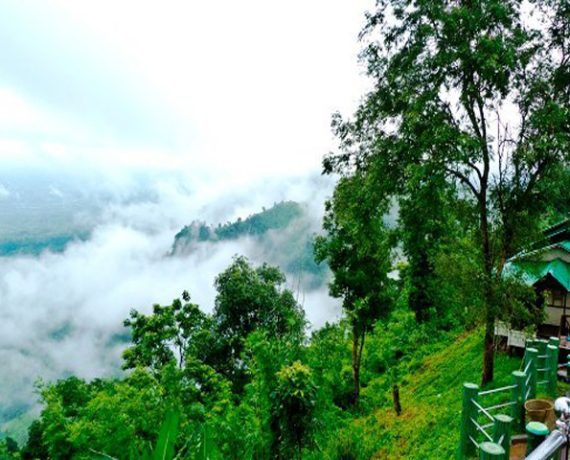
GRAUS has made significant contributions to the education sector, particularly in remote and marginalized communities. It works to ensure high enrollment and reduced dropout rates in primary schools, emphasizing inclusive education by providing multi-lingual educational materials in ethnic languages like Marma, Chakma, and Tripura. GRAUS also facilitates social lodging for underprivileged children, offering safe living conditions to support their continued education, while ensuring community oversight for sustainability. The organization’s School Feeding Projects further support child health and nutrition in school settings, contributing to better learning outcomes.
GRAUS promotes sustainable livelihoods and economic development by offering training programs aimed at skill development in economically disadvantaged communities. These initiatives enable income diversification and community empowerment, fostering local leadership. The organization facilitates Value Chain and market linkages for smallholder farmers and provides entrepreneurship development support, including financial management and market strategies. Through niche market development, GRAUS supports economic activities such as banana fiber, honey production, coffee, cashew nuts, mushroom cultivation, vermi-composting and Women Livestock Health Volunteers ensuring that marginalized groups, particularly women, have access to income-generating opportunities and market integration.
GRAUS emphasizes climate-resilient agriculture and improving nutrition security. It identifies and distributes climate-resilient seed and vegetable varieties to enhance the adaptive capacity of farmers. For landless farmers, GRAUS introduces innovative cultivation methods such as sack gardens, vertical gardens, and half-moon bunds. The promotion of crops like cassava in Bandarban and sandy land cultivation are key areas where the organization focuses on increasing agricultural productivity in challenging environments. Additionally, GRAUS supports aquaculture and community gardens to diversify food production and improve household nutrition while building community capacity.
Gender equity and women & Youth empowerment are central to GRAUS’s mission. The organization leads initiatives on Sexual and Reproductive Health and Rights (SRHR) and the prevention of Gender-Based Violence (GBV). GRAUS raises awareness on SRHR issues, providing access to maternal health services, and healthcare, while combating stigma around these topics. GBV prevention is integrated into community campaigns and schools, and GRAUS establishes safe spaces for survivors, providing legal and psychological support. Economic empowerment is another key focus, where GRAUS provides skill development, financial access, and entrepreneurial opportunities for women and youth focusing on the proper implementation of National Youth Policy, ensuring they are active participants in both household and community decision-making.

GRAUS’s approach to Natural Resource Management (NRM) emphasizes sustainable practices that protect the environment while ensuring the livelihoods of local communities. The organization facilitated the formation, functioning and capacity development of Village Common Forest (VCF) Committees to promote forest conservation, area demarcation and protection, digital mapping, natural resource conservation practices, forest restoration and sustainable farming techniques to prevent environmental degradation. Involving VCF Committees in the management of natural resources is a priority, as GRAUS believes in empowering communities to steward their land and resources responsibly. GRAUS integrates Climate Action across its programming to reduce the vulnerabilities of communities to the impacts of climate change. The organization promotes the resilient activities, such as climate-adaptive agriculture and reforestation projects, to strengthen local ecosystems and livelihoods. GRAUS educates communities on climate change impacts and adaptation strategies, ensuring they have the tools and knowledge to build resilience. Additionally, GRAUS supports initiatives that enhance community capacities for risk management and climate adaptation, ensuring that marginalized populations-especially women are included in climate decision-making processes. Through these efforts, GRAUS helps communities develop sustainable adaptation mechanisms, contributing to long-term resilience against climate-related disasters.
GRAUS has been a leading organization in advancing social cohesion and cultural revival in the Chittagong Hill Tracts (CHT), recognizing that sustainable development is deeply connected to peace, harmony, and inclusion. The organization believes that genuine progress can only be achieved through trust, cooperation, and justice among diverse ethnic communities.
Over the years, GRAUS has implemented numerous initiatives focusing on community empowerment, youth and women’s leadership, cultural revival, and inclusive justice, aiming to strengthen inter-community harmony, reduce discrimination, and ensure that marginalized voices play an active role in building peaceful and resilient societies.
Its approach emphasizes inclusive dialogue, conflict prevention, and collaboration among communities, addressing the root causes of conflict such as ethnic tension and misunderstanding through trust-building, mutual respect, and cross-community engagement. GRAUS also works to promote peace education, reconciliation, and non-violence awareness while fostering youth- and women-led mediation, advocacy, and leadership in peace processes.
Furthermore, GRAUS supports community-based conflict resolution mechanisms, strengthens the capacity of local leaders and institutions on conflict-sensitive and human rights-based approaches, and encourages the observance of national and international Peace Days to nurture a culture of peace.
Through these sustained efforts, GRAUS continues to contribute to peaceful coexistence, inclusive development, and long-term social harmony across the Chittagong Hill Tracts.
About GRAUS
GRAUS (Gram Unnayon Sangathon), founded in 1998, envisions a society free from discrimination, hunger, and poverty. Dedicated to empowering marginalized communities, GRAUS fosters resilience and inclusivity through active participation in sustainable development. Registered with Bangladesh’s Ministry of Social Welfare and the Bureau of NGO Affairs, GRAUS is a proud member of IUCN and IIFB, reflecting its commitment to biodiversity conservation and climate solution.















Developed by Aung Chano Marma, Advisor, GRAUS Contact: 01620827555